Heart of Dryness: Botswana’s Bushmen Fight for Human, Water Rights
The fifth installment of Workman’s book details the Bushmen’s painful legal battle for water access against the Botswana government, which had begun to use “intentional, compulsory thirst” on the indigenous community. Left little choice, the Bushmen pursued court action to make access to water a fundamental human right. The Bushmen teamed up with local activists and a growing international movement to win what is considered a landmark case for indigenous rights as well as one of the national tests of whether humans are endowed with an inherent right to water, according to Workman. Despite the victory, there have still been reports of abuse and land battles by the government against the indigenous peoples.
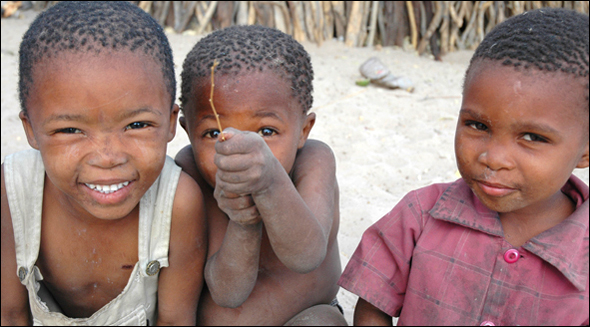
By James G. Workman
Special to Circle of Blue
Now that they had been prohibited from negotiating contracts to secure water as a private commodity, Qoroxloo’s band of Kalahari Bushmen was left no choice but to seek it as a fundamental human right.
This was legal terra incognita, and human rights lawyers initially filed the lawsuit as a last resort, hoping to reverse the evictions, gain leverage, bring all parties to the table, and broker a fair settlement. “The government should not feel boxed into a corner,” one local attorney told me on several occasions. But when the President officials established their siege of the reserve and refused to budge, 243 Bushmen challenged President Mogae head-on in Botswana’s High Court.
Many expected a swift judgment, but instead the case crawled across 251 weeks like a Kalahari tortoise at midday. Stenographers churned out 19,000 pages of court transcripts. Bushmen plaintiffs and government respondents filed 4,500 pages of legal documents. The legal process was agonizing, and only got underway in 2004, whereupon the first Bushman witness, hunched in the witness stand, spoke softly. Too softly. His voice was nearly inaudible. Within minutes an irritated Chief Justice M. Dibotelo had him stop mumbling. “You must speak up!”
Amogelang Segootsane explained his voice was naturally low.
Dibotelo leaned forward, instructed the witness to stand on his feet and project from the abdomen so that everyone could hear.
Amogelang said he was exhausted, having traveled a long and difficult journey on foot through the desert to get here. The city was disorienting. He had camped out in unfamiliar bush and had not slept well.
Dibotelo repeated his instructions for the third time.
An awkward silence followed. Here at the country’s defining human rights trial, the court was demanding that a thirsty, destitute, fatigued, and frightened witness stand up for several hours in a hot and airless room under cross examination by a sneering government attorney while officials poured icewater from pitchers in front of the man who for two years had been denied a drop.
Dibotelo paused to consider the situation.
The U.S. was already accusing Botswana of gross human rights violations against Bushmen: violence during interrogations; lengthy judicial delays; limits to journalists and academics; activist harassment. Of course America itself faced similar allegations: excessive force during questioning of suspects; holding prisoners indefinitely without trial; press restrictions; and using water to extract information. But if activists challenged the Bush Administration for waterboarding, Mogae’s government was on trial for precisely the opposite reason.
Amogelang said he found himself standing up, “here in this box,” ordered to project his voice, for two reasons. First, the government cut off his family’s regular supply of drinking water. Then it stopped him from bringing a regular supply of drinking water to his family by himself. He didn’t want to come to court, but he had no choice.
Dibotelo stressed that this was not an inquisition. “We are not trying to persecute….torment you…you can sit down and rest when you feel the need.”
Witnesses who were subjected to waterboarding typically gave in within 14 seconds, but water deprivation took longer. Some Bushmen endured months or years thirst before caving in. A few dozen Bushmen lived on indefinitely or died under questionable circumstances. But they never cracked. Still, state-sponsored thirst might eventually accomplish the task at hand, and offered undeniable advantages to those in control: no scars, no direct force, no physical restraints, and no apparent liability.
The High Court had to decide whether that coercive method—which might be called the intentional use of compulsory thirst—was legal. Judge Dibotelo offered the Bushmen plaintiff a glass of water as a courteous gesture. But did he have to? Or could his government deliberately restrict or prevent Bushmen from access to water? The question was not hypothetical. Repercussions from the High Court’s precedent-setting ruling would resonate beyond borders. On behalf of 6 billion humans, the UN danced around the very same question: were Qoroxloo and all other Bushmen inside the Kalahari Reserve endowed with a human right to water?
For that matter, was anyone?
Liberals generally held that truth to be self-evident. At the dawn of this century, a loose assembly of anti-globalization protesters, trade unions, religious leaders, public utilities, peasant farmers, American social activists, French intellectuals and human rights groups galvanized into the self-proclaimed Global Water Movement. As the essential element without which no living thing can exist, the group’s leaders like Maude Barlow argued, water must be secured for the people, by the government, against Big Business. And its manifesto demanded: “The Earth’s fresh water belongs to the Earth and all species, and therefore must not be treated as a private commodity to be bought, sold, and traded for profit…the global fresh water supply is a shared legacy, a public trust, and a fundamental human right.” Armed with right against might, the Movement provoked nonviolent confrontations and proceeded to chase “foreign economic imperialists” and “water barons” like Coke, Vivendi, Suez and Bechtel out of town, from Kerala, India to Buenos Aires, Argentina to Sydney, Australia to, most spectacularly, Stockton, California, where citizens rose up to overthrow a $600 million water privatization contract with the foreign-based OMI-Thames.
Eventually RWE, the German parent conglomerate of a dozen water company subsidiaries from coast to coast, fled the U.S. market altogether. Finally, the Movement called on the United States, World Bank, World Trade Organization and United Nations to insert key phrases their founding charters left out: equal public access to rivers, lakes and aquifers; equal shares of public water to drink, wash and bathe; and the inalienable right to water. “Basically we see water as an issue of human rights versus corporate rights,” said Marlow. Indeed, she asserted, “water is the most important human-rights issue of them all.”
Prominent conservatives adamantly disagreed. This so-called ‘right’ didn’t hold water, figuratively or literally. America’s Founding Fathers were not socialists. They would no more engrave in the Constitution a right to water than they would a right to land, food, medicine, jobs, housing, transportation or fuel. Doing so might even weaken other human rights by making people increasingly dependent on big government. Certainly, water was a necessity. But nothing good came from calling its economic goods and services a ‘right.’ To secure access to water, people must simply deploy “real” and “classic” political rights like free speech, free assembly, and free press. Indeed, “the trouble with rights like ‘water and sanitation’ is that they often achieve the exact opposite of their aims because they invite state intervention into all kinds of areas. Thus, these rights run the risk of bringing about exactly what human rights are supposed to prevent: an omnipresent state.” What’s more, ran the counterargument, it’s impractical. How would any emerging so-called ‘right to water’ be quantified? Would people get an unlimited supply? Would it flow as unrestricted as speech or religious worship, or would failure to pipe free water to every door, on demand, expose leaders to prosecution for human rights violations? What Thomas Paine said about liberty—“What we obtain too cheap we esteem too lightly”—could equally apply to water. Instead of ensuring conservation for all species, said conservatives, a human right to water would quickly lead a nation to waste, pollution, corruption, biodiversity extinctions and, quite literally, state insolvency.
Between Left Bank and Right Bank, billions of non-ideological people like Qoroxloo or Amogelang fell through the cracks. For example, Bushmen did not oppose water as a tradable good, but that conservative option had been closed off, and when denied access to water, the so-called “real rights” to life, liberty and the pursuit of happiness had been consequently infringed. At the same time, Qoroxloo found no liberal written precedent, either. Paine’s The Rights of Man, Jefferson’s Declaration of Independence, and Madison’s Bill of Rights were all silent on the matter; even the post-War UN Declaration of Human Rights failed to mention freedom from thirst. At the time of the siege, no country anywhere recognized, enforced, and clearly defined an explicit human right to water. And against the Global Water Movement, one powerful country fought quietly to keep that issue off all multilateral agendas, out of written charters and banned from binding statements. It wasn’t North Korea, Burma or Cuba that smothered debate about the human right to water; it was the United States of America.
The U.S. attended multi-lateral UN meetings with the express intent to water down language that elevated water as more than an economic good. The richest, most powerful and most individualistic country in the history of the world did not recognize water as a human right, and wanted nobody else to, either. For years, the legality of thirst remained an ideological abstraction, unprovoked and untested in court until the challenge from Bushmen starting with Qoroxloo’s low-voiced co-plaintiff, Amogelang Segootsane.
When the convoy came, Amogelang recalled being surprised at “how much water was poured out of the tanks.” He told the Court he “did not know what to think,” but assumed “there was something wrong with the people’s heads, or the tanks.” The intent soon became clear. One truck took the tank away; others carried off his neighbors. Those who remained “were very hurt.” Their provisions dwindled. As husband and father of three, he had to act. If the government could not bring water to his family, he would.
So one day he stored up wild kgengwe, a water-rich plant, for his family, and proceeded to walk south. He crossed tiny salt pans. Well outside the Kalahari Reserve, he filled plastic barrels with water at a tap and brought them back in a borrowed donkey cart. He did this every few months until the day he was blocked. As the guards made him pour all his water out they explained they were only following orders, and if he didn’t like it he could write their bosses, asking permission. Amogelang could not write or count past ten, but he knew who could, and decided to seek her. He walked further out of the reserve to Kaudwane, slept near a fire with people he knew, and told them he sought permission to take water into the Kalahari. When they asked if he could also bring water to their families remaining in Gope and Metsiamenong, he said he did not know, but would try.
He rode south, sharing a bareback horse until he arrived at Lethlekeng, a town so large it had a gas pump. From there he hitched a ride over smooth asphalt until reaching Gaborone, where drivers killed more people each day than Botswana’s lions killed each century. He could not read signs but searched the disorienting streets. He asked directions, in his low voice, and pronounced a name. People knew it. They pointed him toward her understated office, where he stepped up to the door, and knocked.
As a local maverick from a royal tribal family, Alice was uniquely positioned to do so. Only she, not a foreigner, could educate her countrymen about the insidious nature of torture used against Bushmen hunters. Through Ditshwanelo she could legitimately investigate and challenge their underclass status as squatters in their own country. Alice knew the language intimately enough to trace origins of ‘Basarwa’ to a corruption of ‘bao ba-ba-sa-ruing dikgomo,’ which is to say, those who do not rear cattle, and then scold her nation for defining Qoroxloo in the negative, and abnormal, in terms of what she lacked.
Nevertheless her crusading organization could barely stay afloat. As foreign funds dried up, quixotic charities like hers might have to court the favor of government and actively seek out senior political figures for help, the same figures she might later need to challenge. It was a frustrating quandary. She sat at her desk with a back support staring at a wall of posters filled with worthy battles she had no time or money to fight. She firmly believed the Bushmen lawsuit had been inexcusably delayed by the aggravating rhetoric of foreigners, and now those same overseas human rights groups—unburdened by her own financial constraints—had taken the case out of local hands to fight in their typically Western confrontational manner. Alice, by contrast, still believed fervently in quiet diplomacy and one-on-one negotiation and compromise. Then again, she had no choice.
The receptionist told her she had a visitor. She heard who it was and knew how far he had come to reach her office and she stood to welcome him. He was still dressed in her husband’s hand-me-down clothing that she had provided years earlier.
Dumela, Rra, she said, greeting him as an equal.
Dumela, Mma, he replied, smiling back.
What can I do for you?
Amogelang wanted to tell her his troubles, but she knew them. He wanted to convey his hopes and fears, but she shared them. So he cleared his low, barely audible throat, hoarse from the dusty journey, and said: We have no water.
It was a farcical legal claim, and a clever one. But before it could be tested, the argument left open a loophole that lawyers like Alice could exploit. She urged Bushmen to accept water in the new place outside, and then bring it back to the old one inside.
The government hadn’t figured on that. But as part of its siege, Botswana’s attorneys found yet another legal rationale that would try to prevent it. No one could interfere with government policy; policy was based on denying water exchange; so officials halted all trade across the Reserve boundaries. Water, along with anything else, became contraband.
So Alice found a second loophole. By definition, no individual can trade goods or services alone. So Bushmen women and men inside could go out and haul water back to themselves.
Officials apparently hadn’t considered this possibility, either. They soon had to. On behalf of all Bushmen, Amogelang requested permission, “for us to enter the [Kalahari Reserve] with water. So that we may have something to drink everyday. The places to which the water will be taken is Kukama, Metsiamenong and Gope. It is really heart breaking when one sees the sick orphans and the pregnant women.”
The next day, Botswana’s Water and Wildlife Departments passed the buck. “We have come to the conclusion that it is not our responsibility to give permission to people to carry drinking water” and referred the issue to the Ministry of Local Government. Five days later, the Ministry of Local Government’s permanent secretary explained calmly how his ministry did not “implement regulations relating to Parks.” It operated under the fiction that no one remained inside the Reserve; holdouts stayed of their own volition, in No Man’s Land, and “not the responsibility of Local Government.”
As an exhausted Amogelang sat before her, Alice had to explain how the Wildlife Department would let him bring water to his family once Local Government signed off, except Local Government couldn’t sign off because it had no authority over Bushmen once they entered the Kalahari Reserve; Local Government would quickly sign off on Wildlife and let him carry water inside, if he and Bushmen inside the Kalahari Reserve left; only in that case permission would not be necessary because they would have moved outside the reserve where the water was. This circular logic infuriated Alice. She believed in Botswana, took pride in its peaceful traditions, and strived to improve its governance nationally and its reputation globally. As the water situation deteriorated and options ran out, she tried turn crisis into opportunity and give diplomacy one last chance.
Local Government Minister Margaret Nasha might be described by generous authors as “traditionally built” and by everyone else as fat. Nasha was the official who, along with the military officers, was responsible for cutting off water to Qoroxloo’s band; to Bushmen, she was the face of their rival. Bushmen said Nasha spoke down to them, as helpless children in need of guidance. Nasha compared Bushmen with elephants needing to be culled. Bushmen loathed Margaret Nasha. Alice picked up the phone.
She requested a few minutes with Nasha for a quick talk about certain unforeseen aspects of the Kalahari Reserve situation, with no direct bearing on the court case. Nasha knew how Alice’s tongue could get started and never stop, so had scoffed, only partly teasing, You? Quick talk? Won’t take long? Huh!
When Alice showed up with Amogelang at her side, Nasha visibly stiffened, and her eyes narrowed, but she held her anger in check and gestured for Alice to say what she had to, face to face.
For a change Alice said little, instead turning to Amogelang. Why don’t you tell her what you told me?
He looked at Nasha and in that low, soft voice said: We have no water.
Nasha came uncorked. According to two of the three people in the room Nasha proceeded to excoriate Bushmen like him, who remained inside the Reserve, correcting him that there was water, plenty of water, because the government had offered water, more water than anyone needed, schools with water for children and water for everyone who wanted to develop like all citizens all over the country, until, at last, she ran out of steam.
Then both women turned to Amogelang for his response, and he repeated what was at stake for billons who shared his predicament.
We have no water.
When Botswana cut off Bushmen water in 2002, few had heard of a “human right to water.” Three years later much of the outside world, from France to India to Ecuador and South Africa were taking steps to make it explicit. Bowing to “a growing movement to formally adopt” it, the Vatican proclaimed “The right to water is thus an inalienable right.” Even water-intensive industries like Nestle and Coca Cola—which in theory would face restrictions on economic activities, a weakening of demand for their product, and a potential hit to their bottom line—called for recognition of a human right to water for the sake of certainty and preserving their brand name. Finally, in a statement backed by Kofi Annan—and opposed by the United States—the UN Committee on Economic, Social and Cultural Rights called it “indispensable for leading a life in human dignity. It is a prerequisite for the realization of other human rights….The human right to water entitles everyone to sufficient, safe, acceptable, physically accessible and affordable water for personal and domestic uses.”
The UNspeak would have aided Qoroxloo and her band if the words had been legally binding, and not legally hinting. The UN outlined what state parties like Botswana should, could, might and really ought to do when it could find the time. But the eloquence lacked teeth. There was in principle an implicit human right to water. Explicitly, it did not yet exist.
Back in Nasha’s office, as citizen, advocate and government official squared off over the one resource they each shared and all needed to survive, it was hard to imagine a more subversive idea. Amogelang embodied the moral imperative, Alice provided the legal context and Nasha, who had to govern, sent them away and pondered what to do. She put her finger to the wind and made a few calls. Days later Ditshwanelo received a letter from Jan. F. Broekhuis on behalf of the Director of Wildlife and National Parks: “We are pleased to be able to grant you permission to carry water into the Central Kalahari Game Reserve for use by yourself and your immediate family…”
Alice was thrilled, and cited this as a perfect example of how one-on-one compromise trumped the polarizing Western hard-line confrontational approach. Now Amogelang could continue his long donkey cart trips. It seemed a victory, a vindication of quiet diplomacy that affirmed the emerging human right to water, in writing.
Or did it? The letter ominously concluded “…until further notice. Note that this permission does not permit you to supply water to any other persons that may reside in the Reserve.” Why “until further notice?” What exactly did “immediate family” mean to someone with twenty cousins, in-laws, nephews and nieces? And what if he did supply water to Qoroxloo’s band, in Metsiamenong, as he had promised? The words “grant you permission” were a far cry from “recognize your inherent God-given right.”
Alice protested that Bushmen should not be required to beg permission to bring water wherever they wanted from officials who were engaging in unlawful conduct. But Nasha’s government decreed otherwise. In demanding the last word, it used variations of ‘permit’ and ‘permission’ five times in three sentences. That signal was loud and clear. Like a driver’s permit, water extended as a temporary license need not be defended as an unconditional right. Accordingly, Botswana’s government could choose to grant what people desired, but it was not obliged to protect a right with which people were endowed.
The difference was subtle but profound, for the scales could always tip back. At any moment, the privilege that the government bestowed as a courtesy could be temporarily rescinded or permanently repealed. Something given could be taken away.
Two years later Botswana proceeded to do just that. The government alleged, without evidence, that Amogelang had been hired to bring water into the Kalahari, thus breaking the terms of their generosity. Officials reasserted that Bushmen could either stay inside without water or move outside to get water, but could not traffic back and forth carrying water of their own. A final letter concluded, “the aforementioned permit has been suspended until further notice,” and denied Bushmen freedom to fill up tanks and return home. Permission for water was revoked.
Amogelang’s extended family was subsequently forced, for the first time in their lives, to depart their ancestral homeland. From the day of the cut-offs they lasted three years, two months and eight days before finally caving in to compulsory thirst and state-sponsored dehydration.
Alice continued to negotiate legal terms with the government on, but kept hitting her head against arbitrary rules of state officials who claimed to be acting on the larger interest of Botswana. At one level, the UN became even more assertive in its statements about water, but failed to walk the walk. It remained for Botswana’s High Court to rule whether Bushmen deserved access to water as an unequivocal human right, on their own terms, in their own land. Yet even its rulings could be nullified by those with power.
Perhaps human rights are merely a reflection of grinding down raw power to an uneasy peace and equilibrium, a constant effort. Indeed, some lawyers and scholars trace the birth of human rights to a similarly temporary truce brokered eight centuries ago which in part hinged on who had access to water. In the 13th century, Britain’s King John fenced off streams, blocked river navigation, and sold monopolies to water resources that used to be free for all. He restricted water access until subjects revolted in a medieval asymmetric war. Thirsty serfs put pressure on their feudal lords and barons, who in turn made the king restore access to water for all, until “the rivers that [he] fenced were directed to be laid open.” They forced his hand at Runnymede—an island within a river owned by no individual—to sign the Magna Carta.
Thus scarcity brought conflict until a powerful equilibrium led all sides to inscribe the foundation of human rights. These came not from God, not through reason and conscience, not jotted down by NGOs to be passed by UN resolution, and not, as Americans were taught, conceived in liberty and born immaculate. All rights—and limitations on the state—emerged through ugly and messy processes, repeatedly and violently clawed and scraped and forced into the light where they could be defended.
Until that happened, tensions escalated. Qoroxloo’s stubborn band was the last of those who never caved in to the government’s compulsory thirst, who never surrendered to the siege, and who as a consequence brought armed government officials to advance on their camps. As Mogae constricted his line in the sand, death would come even to Bushmen denied access to water as a human right.
CHAPTER 15: HUMAN RIGHTS, WATER WRONGS
1. “Country Reports on Human Rights Practices—2005,” Bureau of Democracy, Human Rights, and Labor March 8, 2006. Backed by bipartisan Congressional support, U.S officials were at that moment employing what a former CIA director described as the “professional interrogation technique” known as “waterboarding.” Officials immobilized the hooded witness horizontal or upside down and repeatedly poured water onto his face; convinced he was drowning, a gag reflex kicked in, he choked, sputtered and cracked in 14 seconds. The psychological effects lasted much longer; years later some traumatized victims couldn’t take showers, or panicked when it rained.
2. “CIA Whitewashing Torture: Statements by Goss Contradict U.S. Law and Practice,” Human Rights Watch, Nov. 21, 2005. Richard Esposito, “CIA’s Harsh Interrogation Techniques Described,” ABC News, May 19, 2006.
3. Kathleen Dean Moore, “Life, Liberty, and…Water?: In the struggle over water, human rights and environmental ethics flow together,” Orion, Winter 2002.
4. Maude Barlow and Tony Clarke, Blue Gold; Jeffrey Rothfelder, Every Drop for Sale; Alan Snitow, Thirst.
5. Gleick, et al, The New Economy of Water.
6. “The Treaty Initiative to Share and Protect the Global Water Commons.”
7. Snitow, Thirst. The Treaty Initiative was unanimously endorsed by the 800 delegates from 35 countries to accompany demands on behalf of all the world’s citizens, including you.
8. Maude Barlow & Tony Clarke, Blue Gold, P. 239
9. “Stand Up for Your Rights: The Old stuffy ones, that is: newer ones are distractions.” The Economist, March 24, 2007; “Many Rights, Some Wrong: The World’s Biggest Human-Rights Organization Stretches Its Brand,” Economist, March, 24, 2007.
10. Reinout Wibier, The Economist, Letter to the editor, April 7, 2007. The World Bank’s water guru, John Briscoe, dismissed the Movement’s underlying premise: “What does it mean to say that water is a human right?” he demanded. “Those who proclaim it so would say that it is the obligation of the government X to provide free water to everybody. Well, that’s a fantasy.”
11. Peter Gleick, “The Human Right to Water.”
12. distshwanelo’ [pronounced ” di – tsua [silent “h”] – ne – lo” with “di” being the plural prefix and the accent being on the “lo”]
13. Alice Mogwe, “Who Was (T) Here First?”
14. Letters of Correspondence Dept Wildlife and National Parks (Jan. F. Broekhuis) and A Segootsane c/o Ditshwanelo, 5th July 2002.
15. Constitutions of Ethiopia, Gambia, South Africa, Uganda, Zambia and Burkina Faso; Stephen C. Mcaffrey, “The Human Right to Water Revisited,” in Water and International Economic Law, Edith Brown Weiss, Laurence Boisson DeChazournes &
Nathalie Bernasconi-Osterwalder, eds., Oxford University Press, 2004.
16. Patricia Dandonoli, “The Human Right to Safe Drinking Water: Business Responsibilities and Opportunities in Managing the Global Water Crisis,” Leading Perspectives, Business for Sustainable Responsibility, Summer 2008
17. United Nations Economic and Social Council, General Comment No. 15: The Right to Water, Geneve, Nov. 26, 2002: That is: “adopt effective measures to realize, without discrimination, the right to water.” Botswana would “have a constant and continuing duty…to move as expeditiously and effectively as possible toward the realization of the right to water.” Specifically, Botswana was obliged to: respect the right by refraining from unfairly interfering with people’s access to water, for example “disconnecting their water supply;” it had to protect people from interference with their access to water by others, for example price increases no one could afford; and it had to fulfil the right by taking all steps – legislation, implementation, monitoring – with available resources to realise the right to water.
18. Dandonoli, “The Human Right to Safe Drinking Water”
19. Letters of Correspondence Dept Wildlife and National Parks (Jan. F. Broekhuis) and A Segootsane c/o Ditshwanelo, 13 Sept. 2005.
20. The Commentaries on the Laws of England of Sir William Blackstone, 4th ed. (London: J Murrary 1876, 33-34, cited by Robert F. Kennedy, Jr. in foreword to Not a Drop to Drink, Ken Midkiff. Specific text reads: (47) All forests that have been created in our reign shall at once be disafforested. River-banks that have been enclosed in our reign shall be treated similarly. * (48) All evil customs relating to forests and warrens, foresters, warreners, sheriffs and their servants, or river-banks and their wardens, are at once to be investigated in every county by twelve sworn knights of the county, and within forty days of their enquiry the evil customs are to be abolished completely and irrevocably. But we, or our chief justice if we are not in England, are first to be informed.”
21. Jefferson’s inalienable rights may have been endowed by a Creator, but they were meaningless until enforced with bullets against Redcoats, then soaked in Civil War blood, and subsequently earned through aggressive demands, burned churches, cracked skulls and martyrdom of female suffragettes and black civil rights activists, by two World Wars and countless guerrilla skirmishes.

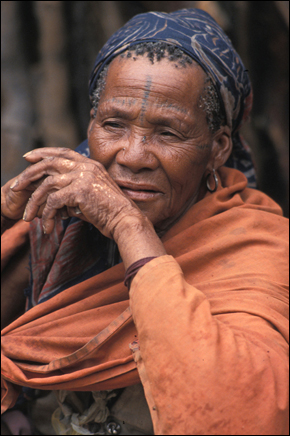
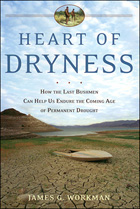

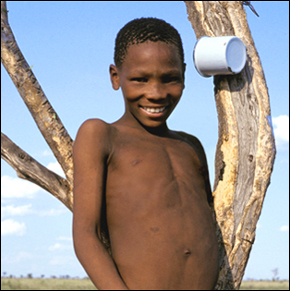
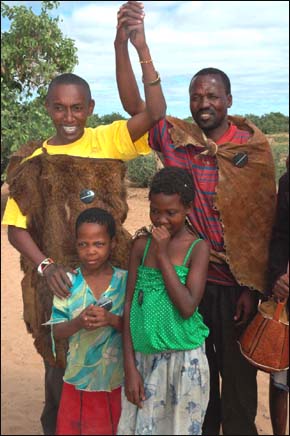
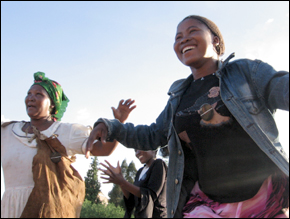
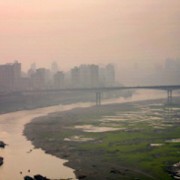
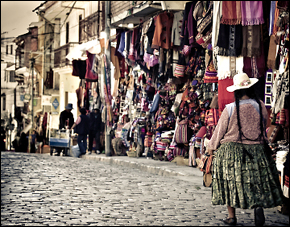


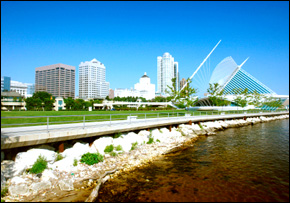

Who source you with such news?
Many observers on this issue are agreeing that deals and conflict over natural resources, especially water, will be common-place over the next decade and the plight of the Kalahari Bushmen goes to further highlight this fact. Professor Stewart Burn has written an article for the Future Agenda Project in which he outlines the future of water as a resource and the challenges surrounding it, stressing its importance as “the only natural resource with no substitute” and how “overall demand for freshwater will exceed supply by more than 50% by 2025 and so the number of people living in water stressed regions will increase”: http://www.futureagenda.org/?cat=3.